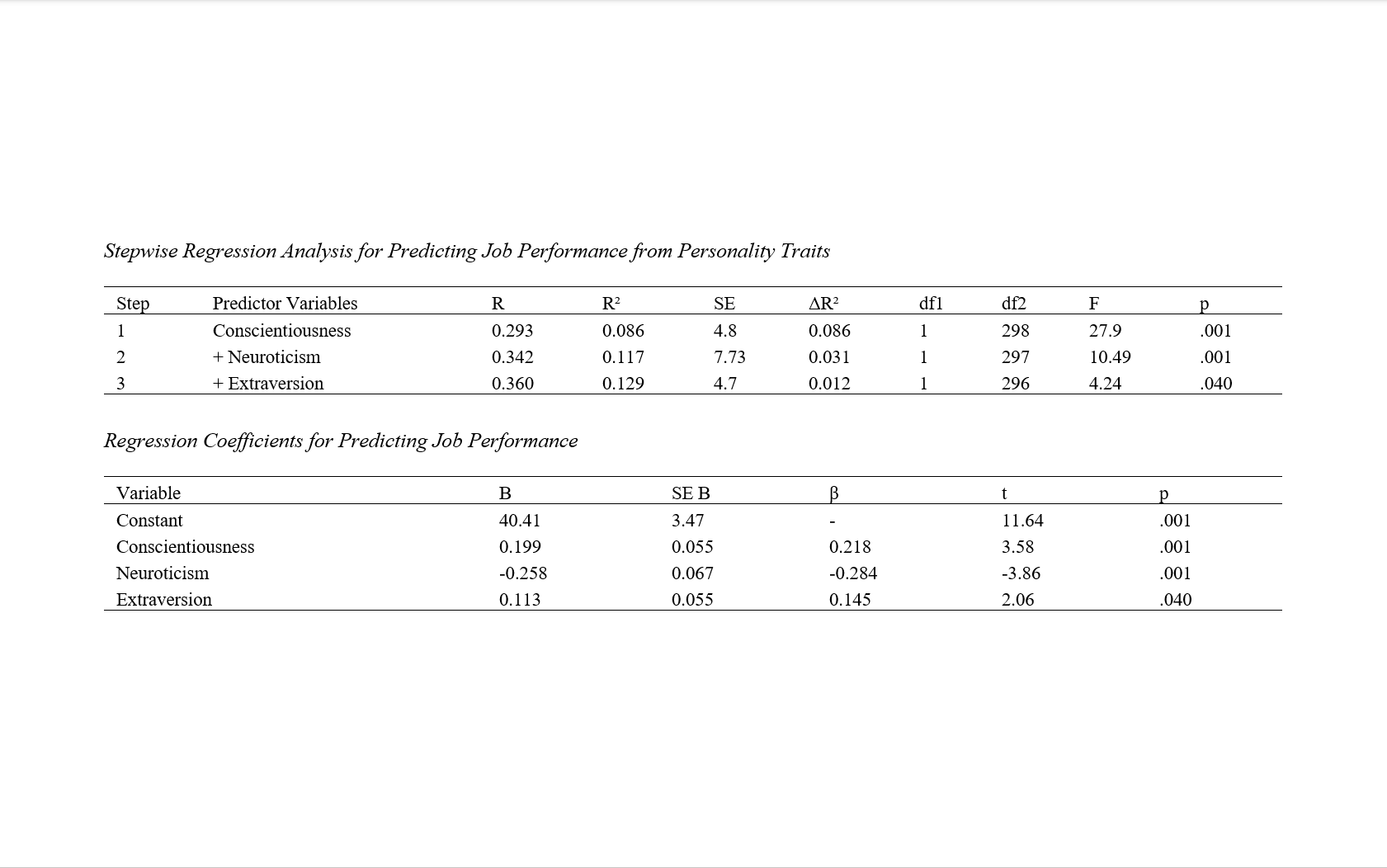Can the Online Profile-Based Personality Questionnaire (OPBPQ) Predict Employees’ Job Performance?
Keywords:
OPBPQ, personality traits, job performanceAbstract
In recent years, increased engagement with social networks has intensified online socialization and the sharing of personal experiences and events. Since online profiles reflect individuals’ authentic and dynamic expressions, social media platforms have become valuable tools for research aimed at understanding social behavior. Personality traits are increasingly revealed through user activity on platforms such as Facebook, Twitter, and Instagram, as inferred from the data generated in these networks. The present study aims to investigate two main questions: (1) Is there a correlation between job performance and the personality traits assessed by the Online Profile-Based Personality Questionnaire (OPBPQ)? (2) Which specific personality traits measured by the OPBPQ are statistically significant predictors of job performance? The target population for this study included all employed individuals in Isfahan in the year 2024. Inclusion and exclusion criteria were applied to a randomly selected sample. Out of a total of 1,746 identified individuals, 300 participants were randomly selected for the final sample. To examine the relationships between variables, correlation and regression analyses were employed. Descriptive statistics and distribution indices were used to assess the normality of the research variables, including measures of skewness, kurtosis, standard deviation, and mean. The distribution curves of predictor variables, multiple linear regression diagnostics (tolerance, variance inflation factor (VIF), and Durbin–Watson statistic), Pearson's correlation test, and stepwise regression analysis were all conducted. Data analysis was performed using SPSS version 26. The results demonstrated a significant relationship between personality traits and job performance. Specifically, the traits of conscientiousness, neuroticism, and extraversion were identified as significant predictors of job performance. These findings indicate that the OPBPQ is a valid tool for predicting job performance and can be applied in various human resource functions, including job assignment and employee selection.
Downloads

Downloads
Additional Files
Published
Submitted
Revised
Accepted
Issue
Section
Categories
License
Copyright (c) 2025 Iman Mohammadi (Author); Hadi Farhadi (Corresponding Author); Gholamreza Manshaei (Author)

This work is licensed under a Creative Commons Attribution-NonCommercial 4.0 International License.







